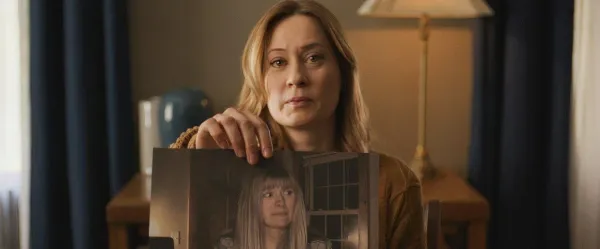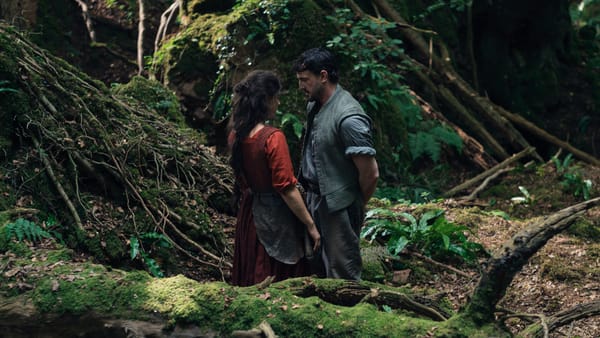Fantastic Four: First Steps (A Reed Richards Deep Dive)
Marvel's First Family have been invisible in the MCU thus far -- whether the goodwill toward Marvel would stretch to this adaptation was hotly debated, but here's the thing...

(Strap In: This is a pretty long one! Spoilers for the film throughout the article.)
What is there to say about this film that hasn't already been spun in a washing machine for 40 hours by everyone and their aunt?
Yes - the effects were good except the baby, the film was exquisitely paced, the characterisations were some of the best you could ever hope for considering the history of the franchise, the take was fresh but still grounded in lore, and it adds itself to the 2025 summer of Superhero movies that are actually superhero movies. Yay's all round for everyone.
And yet, I think I still have a unique read to share – or rather, a unique Reed.
Yes, I'm about to make this review all about Pedro Pascal again, because I am sensing some of you are under-rating this version of Reed because you're all so used to Pedro knocking it out of the park.
So now, my thoughts on what made this portrayal of Reed Richards the best adaptation ever committed to screen.
Super Genius, Terrible Guy
For so many filmmakers, the role of Reed Richards is actually the simplest one to fathom. The Thing is pretty difficult, technically and tonally – if you put a foot wrong with Sue you've kind of ruined the entire film, and Johnny Storm needs to walk a line between petulant and heroic that's very difficult to achieve with the kinds of Disney stakes usually employed in films such as these.
Reed is easy – Reed is Iron Man is James Bond is Batman etc. etc. – Smartest guy ever with all the resources he needs to be a badass on his own terms. Simple, straightforward power fantasy.
The thing is (hah) – that's not really how the comics approach him, and more importantly, if your Reed Richards is Iron Man, you're going to have a hard time actually integrating him into a family - you know, the whole point of the comic.
In order to make a coherent film, even if you retro-engineer it via Sue (which it seems they did here – so much of the Plot revolves around her), you're going to need to tailor your male power fantasy to the other puzzle pieces around him.
Shakman, and by extension Pascal, didn't just understand this – they fully did away with the 'power' part of this fantasy, choosing instead to focus on the shaking neurotic vulnerability of a man who knows he is the only person with the knowledge to save the world. No arrogance, no malice (hah) – truly just a guy with a talent who is desperately trying not to let everyone down.
Nuance within Heroism
So any Reed worth his salt is going to be a vibrating mess (which makes Pascal a particularly good fit, all things considered) – this allows Sue to be mad without being unheard, it allows Ben to be the rock (sorry, "The Thing") without being useless, and it allows for the more reckless "guy" moments to belong to Johnny.
This leaves Reed with, in my opinion, the most terrifying and dramatically juicy responsibility – knowing.
The best scene in the film, the one where this Reed and Sue became viscerally real for me, was when Reed realised he'd have to use his first born as bait for a space monster he'd never be able to beat. Sue, who may not be able to think of these kinds of solutions (more attuned to the diplomatic than the catastrophic), catches up to his plan and, with her own intelligence, realises there's no other option.
We already know she thinks he's callous. We already know he thinks he's a realist. We already know she respects his wisdom. We already know he feels he's broken.
By the time Reed is looking at Sue, and Sue is looking at him, while Ben and Johnny shout in the background – oh my god – this is not your average superhero movie, because what.
Reed is completely consumed with guilt and anguish at this point - something Pascal is unable to hide even a little bit, and Sue is furious, something Kirby desperately tries not to show, and it literally moved me, like my physical body, watching it in the cinema. It wasn't just the conversations we'd seen in the film – you could sense every conversation they'd ever had, and neither of them really say a thing.
Playing Soft against Hard
Ultimately, what sets this Reed apart from any other is how often he meets difficult circumstances with a Bruce Banner-esque morose resignation.
This somehow highlights both his intellect and internal anguish even more - we get a sense that this Reed has imposter syndrome the size of Galactus anyway, and that though insecurity might drive all of these geniuses in their own ways, that Reed is the only super genius smart enough to know he's working out of insecurity, and feel guilty about it.
Another standout scene, that people keep forgetting because we're used to getting our hearts punched out of our chests by Pedro, is the scene with him and Franklin in his lab. He essentially tells his own child that he hopes he doesn't have any resemblance to him.
That is an incredibly, dangerously sad place for a character with this amount of intelligence to be. This starts to develop as he talks to Sue about thinking up the terrible scenarios so he can stop them happening – but I feel as if the worst instincts of this character are yet to come.
This is actually what makes Reed Richards the most important character in Marvel Canon, and what so many adaptations get wrong. He's not really a genius billionaire playboy philanthropist, and he's not Batman - he's a guy with good intentions that thinks he's right. That thinks he's neutral.
Especially in Shakman's adaptation, it takes his family to be able to help him understand that the world needn't be only on his shoulders, and it's often his family spurring him on to be optimistic and actually find solutions. Reed's pessimism is just as dangerous as his intellect.
Pedro and the art of contrast
I said all the way back when this was announced that this was genius casting – there are only a few male actors that can alchemise masculinity on this scale, like Pedro does. This is a role he was born to play, and anyone who didn't see that didn't fully understand the potential of Reed to be the ultimate antihero (which I'm sure will be coming soon).
This Reed cannot actually do anything without his family – though he may be capable on his own, he's trapped in his own perception of the world and needs Sue, Ben and Johnny to shake him out of it. At the end of the day, that's what makes Reed relatable to any and every audience member.
Pedro Pascal seems to be allergic to a simple interpretation of character – as I've said in many pieces before (some even on my Patreon from before this publication existed), he manages to take very archetypal masculine roles and apply a frame of vulnerability that turns them from self-insert gods into real-life men. I think this explains the paternal patina he's managed to cultivate – I guess most of us have dads or father figures that we've known through their triumphs and their vulnerable moments, so it makes sense that the few men within media able to convey that openly will emerge as being the most popular.
Anyway. The film was good.





